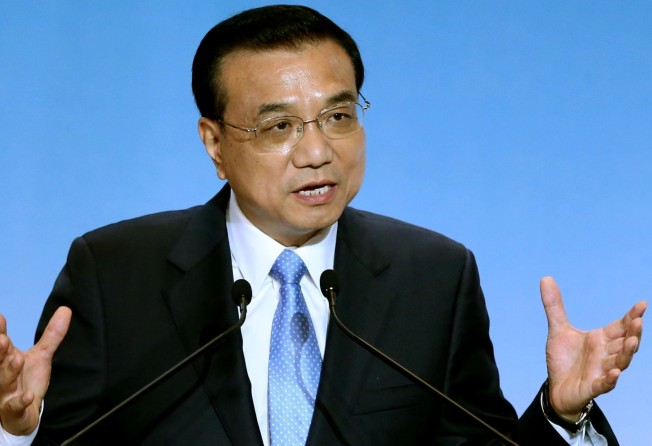China's market collapse could play havoc with Premier Li Keqiang's economic reform model
Equities markets were seen as the economic drivers of innovation, but their fall could also sink Li Keqiang's "new normal" growth model

The mainland stock market crash has been a bitter pill for the real economy, and will be a huge comedown for policymakers if they are forced to revisit Premier Li Keqiang's "new normal" growth plan for slower, healthier economic development.
Li, the first mainland leader to hold a doctorate (in economics), raised the profile of the capital markets after he took the helm of the world's second-largest economy in March 2013, encouraging technological startups to net much-needed growth funds on the stock exchanges and the over-the-counter markets.
"The market crash could dash the government's hopes for the stock market being an effective fundraising channel," said Wang Feng, chairman of Shanghai-based private equity group Ye Lang Capital. "The worst is yet to come and it's nearly certain the collapse will hijack the originally planned policymaking."
Since June 15, the benchmark Shanghai Composite Index has plunged 29 per cent, sparking a crisis of confidence among investors who now believe the downward spiral will last some time .
Beijing stepped in to stem bloodletting on the A-share market, urging state-owned institutions to buy more stocks and cut transactions costs for shares trading, only to see skittish investors rush for the exit.
Yesterday the country's largest brokerages and mutual funds to work together to prop up the market, while 28 companies reportedly agreed to withdraw their IPOs. This came a day after the China Securities Regulatory Commission (CSRC) said it would slow down IPO approvals.
Zhang Xiaojun, a CSRC spokesman, said the commission would reduce the number of IPOs and the size of ths offerings to shore up investor confidence.
The regulator, which put IPO reform on the top of its agenda this year, was expected to embark on a registration system based on full disclosure of information. The new listings procedures, touted as the boldest move by the regulator in the history of the mainland's equity markets, were designed to unleash a flood of new share offerings to echo the premier's calls to bolster entrepreneurship and expand domestic demand. The CSRC has not published a clear-cut timeframe for the implementation of the new procedures, but they were expected to take effect next year.
"Apparently, the market collapse will deter the regulator from conducting major IPO reform," said Zhou Ling, a hedge fund manager at Shanghai Shiva Investment. "Severe losses by millions of investors in equities is a serious political issue, one that's much more urgent than the market reform."
Normally, the CSRC would suspend new offerings or slow down IPO approvals because they could siphon off liquidity from the existing holdings.
Indeed, a stock market crash would not only undermine a fundraising platform that could help conclude financing of hundreds of billions of yuan, it might turn out to be a rare setback for the incumbent cabinet, whose all-out efforts to drive the mainland economy through wide applications of internet technologies and promotion of customer-focused business models appears to hit a stumbling block.
"It will prompt the leadership to reassess the effectiveness of the policymaking," said Orient Securities chief economist Shao Yu. "The government needs to re-work the policy to find out which element they should focus on now, whether it's opening-up the financial markets, the innovations, or the risk-control."
Before the crash, the Cabinet regarded the A-share market as a catalyst for the real economy, where companies could raise capital for innovation.
In March, Zhou Xiaochuan , governor of the People's Bank of China, acknowledged the positive role of the stock market when he said that eased monetary policy that directed massive flows of funds to equity exchanges could eventually support the real economy as capital infusions found their way to oil companies and food processors.
"A buoyant market on a solid footing could be a reliable funding source," Howhow Zhang, head of research at Z-Ben Advisors, said. "But a roller-coast market doesn't work."
The stock market crisis exacerbated the overall bleak economic outlook as Beijing strives to sustain stable growth to avoid massive layoffs.
The HSBC/Markit Purchasing Managers' Index, a gauge of China's business activity in service sector, fell to 51.8 last month, from 53.5 in May, hitting its lowest since January. A figure above 50 represents positive sentiment; below 50 reflects pessimism.
Global consultancy McKinsey, however, allayed fundraising concerns, underscoring the importance of cultivating talent and turning research into commercially viable products.